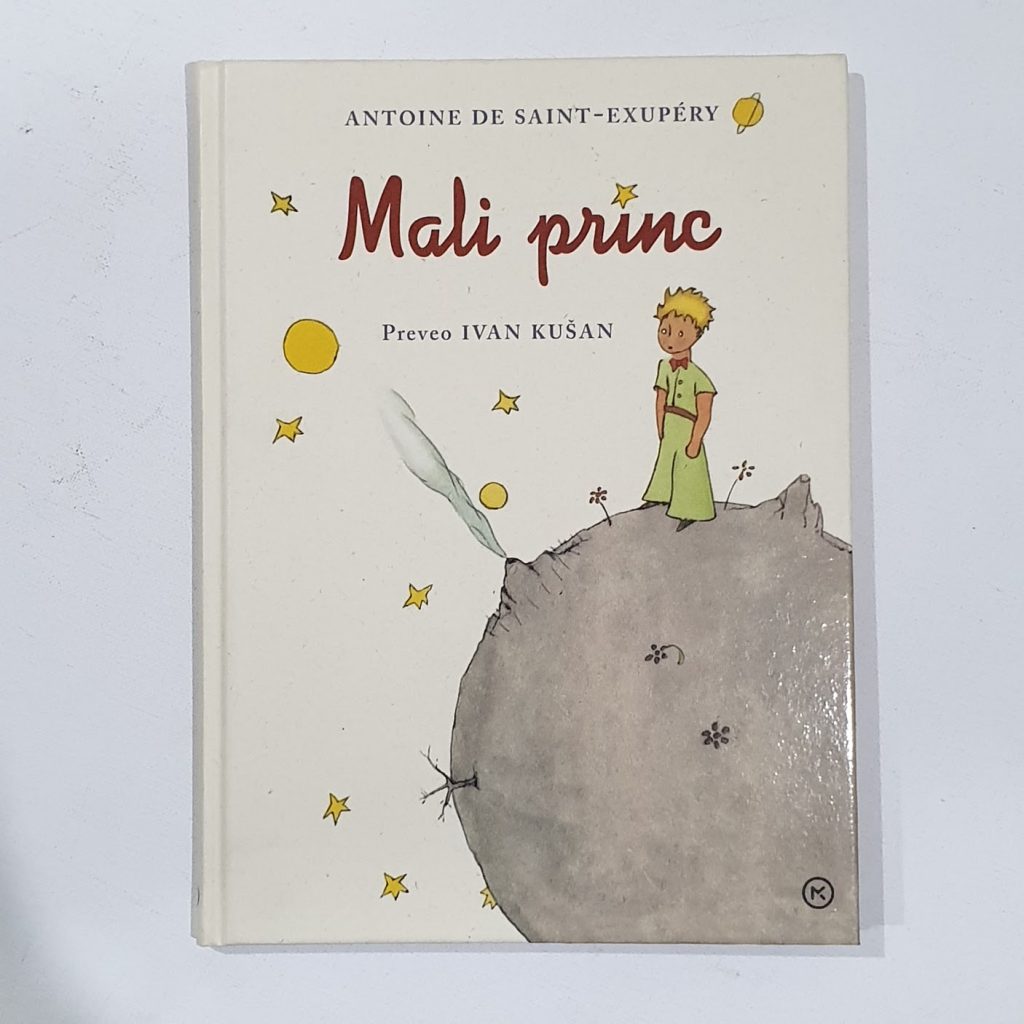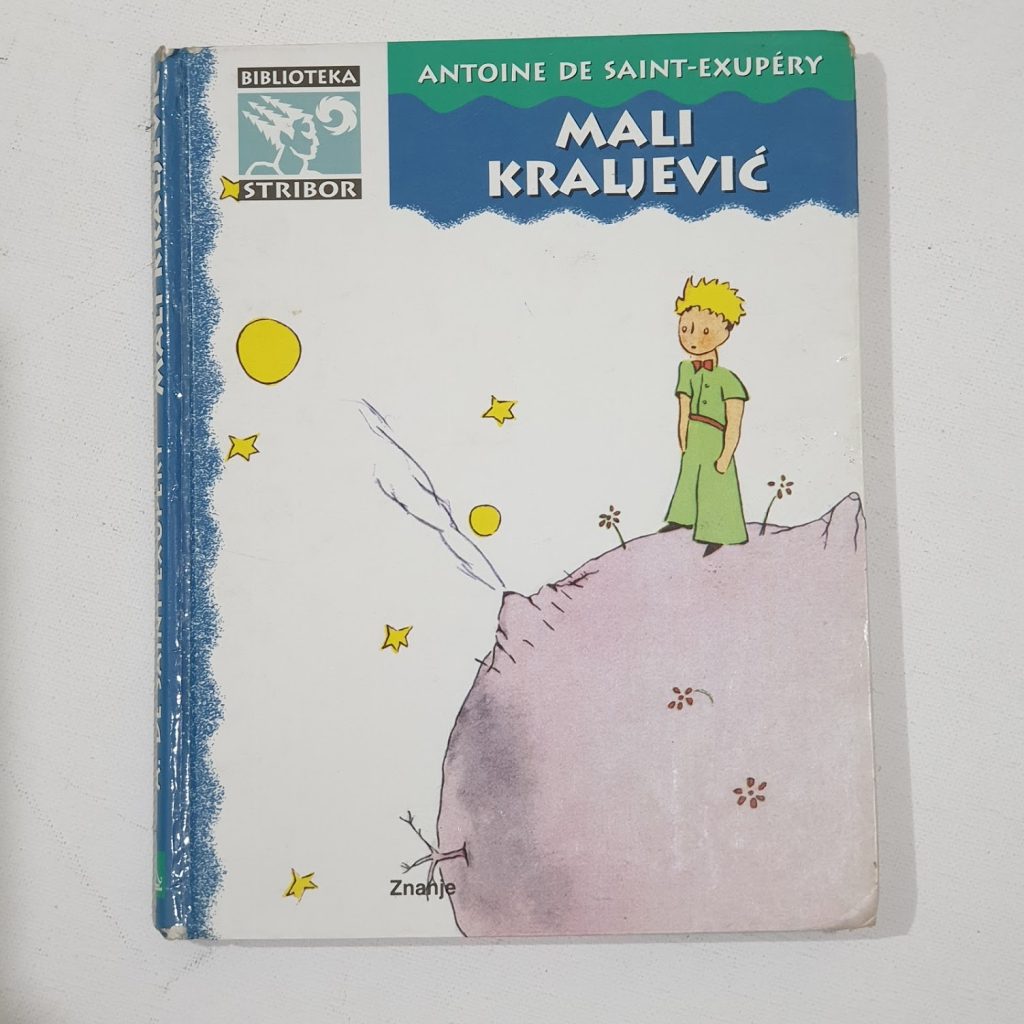
Mali Princ / Mali Kraljević — in Croatian.
Croatian or Hrvatski is the standardised variety of the Serbo-Croatian language used by Croats, principally in Croatia, Bosnia and Herzegovina, the Serbian province of Vojvodina, and other neighboring countries. It is the official and literary standard of Croatia and one of the official languages of the European Union. Croatian is also one of the official languages of Bosnia and Herzegovina and a recognized minority language in Serbia and neighbouring countries.

Standard Croatian is based on the most widespread dialect of Serbo-Croatian, Shtokavian, more specifically on Eastern Herzegovinian, which is also the basis of Standard Serbian, Bosnian, and Montenegrin. In the mid-18th century, the first attempts to provide a Croatian literary standard began on the basis of the Neo-Shtokavian dialect that served as a supraregional lingua franca pushing back regional Chakavian, Kajkavian, and Shtokavian vernaculars. The decisive role was played by Croatian Vukovians, who cemented the usage of Ijekavian Neo-Shtokavian as the literary standard in the late 19th and the beginning of the 20th century, in addition to designing a phonological orthography.
Besides the Shtokavian dialect, on which Standard Croatian is based, there are two other main dialects spoken on the territory of Croatia: Chakavian and Kajkavian. These dialects, and the four national standards, are usually subsumed under the term Serbo-Croatian in English, though this term is controversial for native speakers, and paraphrases such as “Bosnian-Croatian-Montenegrin-Serbian” are therefore sometimes used instead, especially in diplomatic circles.


